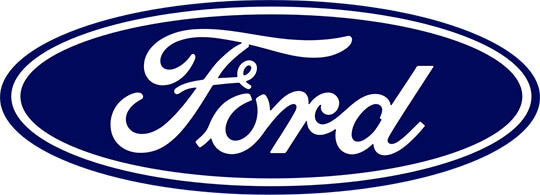
Ford Motor Company has decided to stop sending some of its most popular rides to China in response to the high tariffs that have popped up in the ongoing US-China trade spat. On Friday, Ford officially confirmed that it's "adjusted exports from the U.S. to China in light of the current tariffs" - corporate speak for "we're hitting pause on those shipments."
What's Not Going to China Anymore?
The Michigan-built F-150 Raptor pickup trucks, Mustang sports cars, and rugged Bronco SUVs aren't making the journey overseas anymore. The Kentucky-made Lincoln Navigator luxury SUVs are staying home too. It's kind of a big deal since these are some of Ford's most iconic American-made vehicles.
The reason? China has cranked up import taxes to a whopping 150% on some American vehicles. Let's be real - nobody's going to buy an F-150 Raptor in China when the price tag has more than doubled due to tariffs. Even luxury car buyers have their limits.
A Trade War Reality Check
This whole situation is what happens when two economic giants start playing tariff tennis. China's import duties on American cars now hover around 125%, while the US has slapped a 145% tariff on certain Chinese auto imports. Both sides are basically saying "we can make this more painful for you" and car companies like Ford are caught in the middle.
One industry analyst put it simply: when tariffs hit 150%, selling these vehicles at prices Chinese consumers would actually pay becomes pretty much impossible. The math just doesn't work anymore.
Ford's China Export Numbers Were Already Shrinking
Truth is, this isn't exactly a sudden collapse of a massive business. Ford's exports to China have been dropping for years. Last year, they shipped just about 5,500 Broncos, F-150s, Mustangs and Navigators to China - way down from their typical average of 20,000 vehicles annually over the past decade.
Ford has sent roughly 240,000 vehicles to China over the last ten years, but that flow had already slowed to a trickle before these latest tariff hikes came along. Still, those "passion products" (as Ford likes to call them) are high-profit vehicles, so even modest sales numbers made shipping them worthwhile... until now.
"Because of the competitive nature of where the Chinese are heading, they're looking to dominate around the world," - John Lawler, Ford Vice Chair The Detroit News
Not a Complete Cut-Off
Ford isn't completely severing ties with China, though. They're still planning to export American-built engines and transmissions to China. And interestingly, they import the Lincoln Nautilus SUV from China to the US, and those shipments are continuing despite facing heavy American tariffs.
Ford also still makes the Lincoln Nautilus in China through their joint ventures there, so Chinese customers can still get that model without the import tax drama. It's a complicated dance of global manufacturing and trade politics.
The Bigger Picture for Ford and the Auto Industry
All this tariff business is giving carmakers major headaches. A recent study by the Center for Automotive Research estimates that Trump's 25% tariffs on automotive imports will cost automakers around $108 billion in 2025. That's serious money.
Ford's overall business in China has already shrunk considerably in recent years. Their total sales there (including joint ventures) have dropped from about 1.3 million vehicles in 2016 to around 400,000 in 2024. Part of that is increasing competition from Chinese car companies, and part is the increasingly complicated trade situation.
Still, Ford made about $900 million in operating profit from China last year, according to Vice Chair John Lawler. That's nothing to sneeze at, which explains why they're not walking away from the market entirely.
What's Next?
There might be some relief on the horizon. President Trump recently hinted he's considering tweaking the auto-related tariffs and potentially allowing some exemptions. If that happens, companies like Ford might recalculate their export plans. Ford is actually in a better position than some automakers to handle these tariffs since about 80% of the vehicles they sell in America are made in America. But if these trade tensions continue, don't be surprised if new vehicle prices start creeping up to offset all these extra costs.
For now, if you're in China and have your heart set on a new Mustang or Bronco with that authentic American pedigree, you might be out of luck. But in the ever-changing world of international trade, today's roadblock could be tomorrow's open highway. We'll just have to wait and see how this latest chapter in the US-China trade story unfolds.






